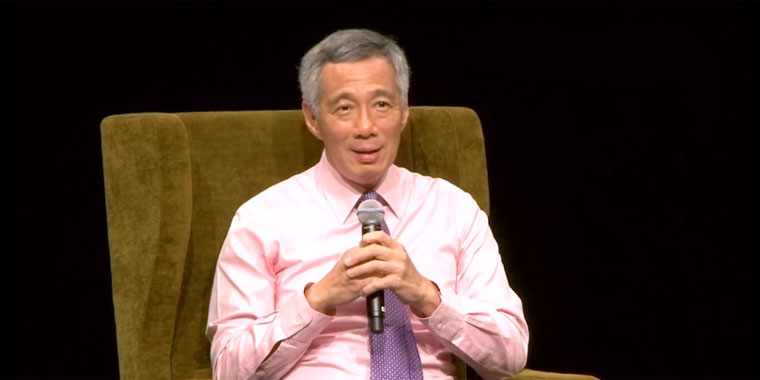Prime Minister Lee Hsien Loong gave a lecture at the National University of Singapore Society (NUSS) 60th anniversary on Oct. 3, 2014.
This year's theme -- with three take-home points -- was "Singapore in Transition - the Next Phase".
During the question and answer segment, he was asked by Gillian Koh, a Senior Research Fellow at the Institute of Policy Studies for his views on the classification of the movie To Singapore, With Love by Tan Pin Pin.
Koh wanted to know what were some of the conditions under which Singapore's past can be discussed, to achieve a common base to build a sense of historical consciousness and use that as a springboard for the future.
PM Lee's reply made it clear that the response to Communism then was just nation-building survivalist realpolitik:
"It was a violent struggle, it lasted for 40 years since 1949. On one side, you had the non-Communist democratic groups, on the other side you had the Communist Party of Malaya and their sympathisers -- in the Communist United Front. And their job was to say we are democrats and we also want openness and elections and free future for their country but actually it was an armed struggle for power."
Here comes PM Lee's burn:
"These are matters of historical record, they are not seriously disputed, although once in a while you will find somebody argue the contrary for the purpose of getting a PhD."
Oooh, apply cold water and then aloe vera to burnt area.
Some background: Tan's documentary To Singapore, With Love about political exiles had been given a "Not Allowed for All Ratings" classification in September, which means it is not allowed to be screened in public or distributed effectively banned.
The Media Development Authority's position was that the film undermined national security, as the political exiles featured in the film give "distorted and untruthful accounts of how they came to leave Singapore and remain outside Singapore".
During the Q&A, PM Lee also emphasised it was crucial to situate the issue within a historical context as it was essentially:
"...a Communist insurgency, in fact an armed insurrection in which thousands of people were killed. The movie is essentially about some of these persons who were involved - in fact six of them still live or did live in the peaceful village in Thailand".
He stated the proper approach to Literature
"Why should we allow through a movie to present an account of themselves not objectively presented documentary history, but a self-serving personal account, conveniently inaccurate in places, glossing over inconvenient facts than others which will sully the honour and reputation of the security people and the brave men and women who fought the Communists all those many years in order to create today's Singapore?"
Why a movie is different from a book
"A movie is different from a book. You write a book, I can write a counter book, the book you can read together with a counter book."
And why we might be simpletons
"You watch the movie, you think it's a documentary, it may be like Farenheit 9/11 -- very convincing, but it's not a documentary. And I think we have to understand this in order to understand how to deal with these issues."
Top photo via Lee Hsien Loong Facebook
If you like what you read, follow us on Facebook and Twitter to get the latest updates.
If you like what you read, follow us on Facebook, Instagram, Twitter and Telegram to get the latest updates.

